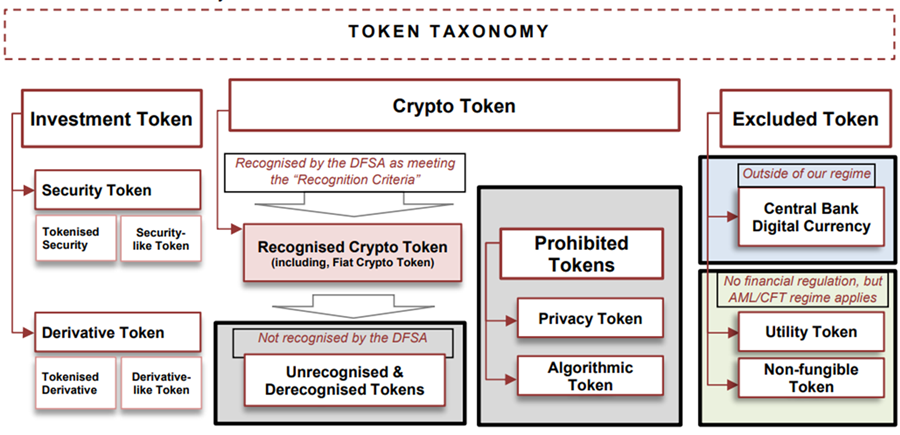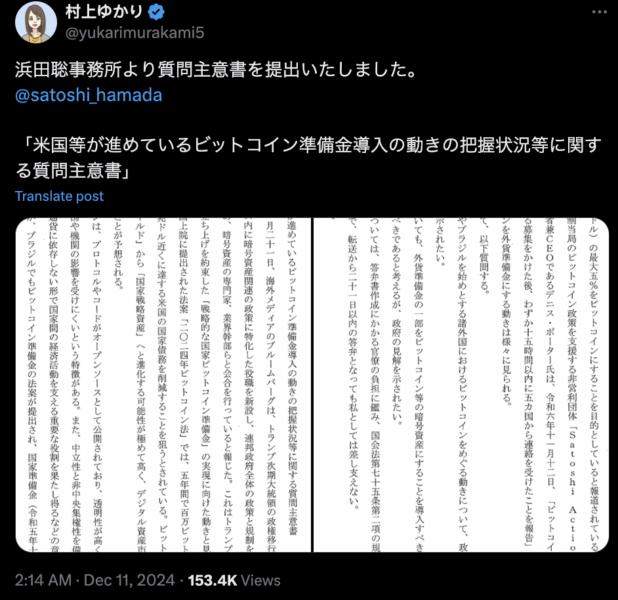DFSA ( Dubai Financial Services Authority) the regulatory arm of Dubai’s International Financial center will be updating its crypto assets regulatory framework with some new amendments that would cover crypto assets, crypto custody DeFi, stablecoins, crypto investment funds and crypto in insurance as well as money laundering and terrorist financing. As such it has come out with a consultation paper seeking public feedback by March 3rd 2024.
As per the consultation paper DFSA notes, “We indicated that there were certain areas where we expected our policy to evolve, for example, in relation to Decentralized Finance (DeFi), Money Laundering and Terrorist Financing (ML/TF) and custody.”
This is very similar to the recent announcements being made by the FSRA (Financial service regulator authority) from ADGM emphasizing adherence to Money laundering and terrorist financing. This comes after FSRA announced it would also be updating its virtual assets framework in 2024.
As per the DFSA consultation paper the amendments only deal with crypto tokens not security tokens or what they call as investment tokens.
Interestingly while the DFSA has not to date licensed any crypto exchanges, brokers or such, they do note that this consultation paper will be of interest to authorized market institutions wishing to trade clear settle crypto tokens. It is also of interest for operator of Alternative trading systems wishing to trade crypto tokens, as well as those who wish to offer crypto custody services.
In addition it is also of interest to firms who want to offer advice, investment funds or issuers or creators of crypto tokens.
Crypto tokens
The DFSA seeks to decrease its crypto token registration fee by 50% now pricing it at $5,000 instead of $10,000. The DFSA seeks to also be more flexible when it comes to registration of stablecoins or fiat pegged tokens.
They will decrease the requirements for the proportion of reserve assets for stablecoins from the 80% they had required previously. In addition they will remove specific requirements on the proportion of assets held in reserves, and instead require that reserves must be held in assets that are likely to maintain their value, (including during periods of stress), are highly liquid, are appropriately diversified and carry minimal credit risk; and require daily valuation.
Moreover, fiat crypto tokens defined in DFSA will be pegged to a single fiat currency and they will not allow it to be pegged to a combination of fiat currencies.
As per the DFSA,”Market and regulatory experience demonstrated the increased risks related to maintaining a peg against two or more fiat currencies. Tokens pegged to a basket of currencies will however still fall within the definition of a Crypto Token.”
Investment Funds External and Domestic
The DFSA seeks to allow external and local funds to invest in crypto tokens. The DFSA requires these funds to meet certain requirements, such as total investment in Crypto Tokens should be limited to recognize Crypto Tokens and does not exceed 10% of the gross asset value (GAV) of the Fund. The units of the fund can only be offered to professional clients only by way of private placement.
In addition the minimum subscription is USD 50,000; and eligible custodian has been appointed to safeguard and administer the Fund’s investment in Crypto Tokens.
The DFSA is also proposing that domestic funds also be permitted to invest in crypto tokens provided these tokens are recognized by the DFSA, and allow them to make limited investment in unrecognized tokens, given that the DFSA has only recognized five tokens. The total exposure to unrecognized Crypto Token cannot exceed 10% of the GAV of the Fund; and the Domestic Fund is a Qualified Investor Fund.
Crypto Custody
Finally when it comes to one of the most important aspects of crypto tokens, custody, the DFSA is proposing that only authorized firms which comply to the DFSA client assessment requirements can offer crypto custody services.
Important to DFSA is that the crypto custodian, properly safeguards client crypto tokens, and segregates them. It should also develop policies and procedures regarding the storage of a Client’s private keys including the type of storage chosen, safety of the keys, and measures to protect the keys from a hack, theft or fraud; among other requirements such as custodial or non custodial wallets and private keys.
Most important DFSA wants to require authorized Firms that Provide Custody or hold or control Crypto Tokens to carry out daily reconciliation of Client Crypto Tokens.
Financial Crime
Finally the DFSA as did ADGM are reemphasizing that all those engaging in cryto business are subject to the UAE Federal AML/CFT laws and regulations, as well as FATF standards which includes the travel rule.
The Travel Rule- (though not a defined DFSA term) is commonly used to refer to FATF Recommendation 16, which requires financial institutions engaged in Crypto Token transfers to obtain originator information and beneficiary information and share it with counterparties before or during the transaction. FATF has advocated the importance of applying these requirements and has reiterated that jurisdictions should implement the Travel Rule as soon as possible.
Interestingly DFSA notes that authorized persons are required to conduct due diligence on any counterparty VASP where transfers are $1,000 or more.
Insurance
The DFSA noted in their consultation paper that given that crypto tokens are being discussed in the context of insurance such as using DLT (Distributed Ledger Technology), for insurance, as well as crypto tokens for denominating policies, receiving premiums and paying out claims, even underwriting risks in crypto market, have prompted DFSA to seek feedback. DFSA is seeking feedback on market trends regarding underwriting Crypto Token specific risks and associated regulatory risks; regulatory risks, and the prudential treatment of crypto exposures where Insurers receive premiums and pay out claims in Crypto Tokens.
Conclusion
The UAE is obviously moving forward with its crypto asset regulations and framework, yet ensuring they are adherent to FATF and money laundering terrorism financing guidelines.





